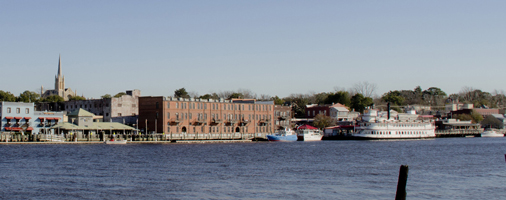
Resistance began immediately after the passage of the Stamp Act, which the colonists considered a tyrannical violation of the principle of English liberty and taxation without representation. The Sons of Liberty in North Carolina formed one of the most active Patriot intercolonial associations opposing the Stamp Act. The Sons of Liberty contested the 1765 law because it was passed by Parliament instead of by the local assemblies, which was the tradition for tax bills. Members of the Sons of Liberty in North Carolina were influential citizens who gained support among the lower classes. They included such political leading lights as John Ashe, James Moore, Hugh Waddell, Cornelius Harnett, and other members of the Assembly as well as Moses John De Rosset, mayor of Wilmington, and Maurice Moore, an assemblyman and judge in Salisbury. Other members were planters and gentlemen from the rural areas of eastern North Carolina who organized and participated in mob protests alongside poorer farmers and townsmen, artisans, seamen, and the unemployed. Official opposition to the Stamp Act was restricted to the Sons of Liberty because Governor William Tryon prevented the election of delegates to the Stamp Act Congress in October 1765 that had been formed to challenge the act.
In October and November 1765 the Sons of Liberty kindled protests in New Bern, Cross Creek, and Edenton, but they were most successful in Wilmington. There, at a mob rally, the earl of Bute was burned in effigy for supporting the Stamp Act. The mob, 500 strong, drank to " LIBERTY, PROPERTY, and no STAMP DUTY." On Halloween night, citizens held a mock funeral for "liberty." The act was to go into effect the following day, but a crowd of nearly 400 forced the resignation of the newly appointed stamp master, William Houston. The mob also compelled Andrew Steuart, printer of Wilmington's North-Carolina Gazette, to resume printing on unstamped paper.
Alarmed by the influence of the Sons of Liberty, Tryon invited many of its leaders to dinner in an attempt to win their support for the tax. But this manipulation only strengthened their opposition. Commerce languished at the closed port of Cape Fear as Tryon insisted on compliance with the Stamp Act and the assemblymen openly opposed it.
Tensions boiled over in January 1766, when two ships, the Dobbs from Philadelphia and the Patience from St. Christopher, West Indies, sailed into Cape Fear. Neither had the mandatory stamped clearance papers from their previous ports. Under the command of Capt. Jacob Lobb, the British sloop Viper seized both ships, as well as the Ruby a few days later.
The seizure of the merchant ships by Lobb, and the decision of Attorney General Robert Jones to try the case in Halifax, Nova Scotia, caused a fierce reaction. Led by the Sons of Liberty, angry citizens of New Hanover, Brunswick, Bladen, and Duplin Counties drew up an "association" that pledged them "at any risque whatever" to prevent the Stamp Act's enforcement. Wilmington's merchants resolved to stop selling supplies to the British warships. A boat's crew that put into Wilmington to obtain supplies for the Viper and the Diligence was arrested and jailed, and the boat itself was dragged through the streets in a noisy demonstration. British authority was further defied by armed colonists who seized the customs house in Brunswick Town and occupied Fort Johnston. Also confronting Governor Tryon at his home, they demanded to see Lobb, whom they thought Tryon was protecting. Most of them departed when they learned that Lobb was on his ship.
On the afternoon of 20 February, rebel leaders met with Lobb, who was the senior British naval officer in the province, aboard the Diligence. Lobb agreed at last to release the seized vessels, on the grounds that they had not been able to acquire the necessary stamped paper at their previous ports, and to let the ships leave North Carolina without stamped papers. Lobb and several officials of the North Carolina colony were made to swear that they would make no effort to enforce the Stamp Act. The stock of stamped paper on the Diligence was eventually returned to England. The colonists had succeeded in preventing any enforcement of the hated Stamp Act in North Carolina, and their actions were influential in Parliament's decision to repeal the act in March 1766. During the next decade, as relations with Britain continued to deteriorate, colonists would remember the successful protest of the "gentlemen, freeholders, and inhabitants" of North Carolina.